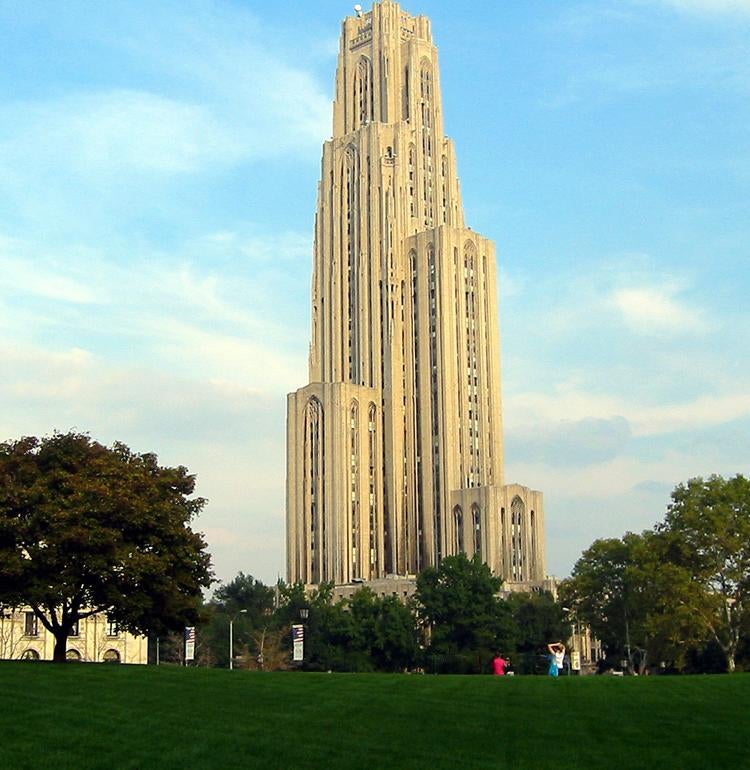Student loan applications are processed by the University’s Office of Admissions and Financial Aid (OAFA). Click on Types of Financial Aid and then review Student Loans sections for information on available loans, application instructions, prerequisites, and forms. Generally, applicants must be U.S. citizens or permanent residents. Contact OAFA for information on loan options, availability, and to apply.
Call 412-624-7488 to check the status of your loan application.
Free Application for Federal Student Aid (FAFSA)
The Free Application for Federal Student Aid (FAFSA) is required for all students who wish to be considered for loans or Pitt Public Health aid. The University of Pittsburgh federal school code is 008815.
Suggested Deadlines
While there is no strict deadline for application, the suggested filing dates are:
- June 1 (fall term)
- October 1 (spring term)
- February 1 (summer term)
Students are encouraged to apply early.
Federal Regulations on Student Loans: Satisfactory Academic Progress (SAP)
Institutions participating in Title IV Federal Student Aid programs must monitor satisfactory academic progress of students receiving any federal loans or other aid (e.g. scholarships).
To demonstrate satisfactory progress, students must maintain a 2.0 GPA and complete at least 67 percent of the total credits attempted at any point and must complete the degree with no more than 150 percent of the required credits. If progress is not met, students may be ineligible to receive loans or other aid. Students may appeal, in which case they will have one term to achieve the SAP standards. See Mike Dolinger in the Office of Student Affairs, 1100 Public Health, to submit an appeal of determination of no progress.
If you receive federal aid, you should read the entire SAP policy. In particular, FTDR registration is counted as 9 credits for the purposes of this law; retaking courses and receiving course grades of W, I, G, F, N (audit) and R all count towards the stated totals. Advanced standing credits also count toward the total number of credits taken. Also, carrying a large number of I, G, W, R, and F graded credits may potentially violate the 67 percent completion rule. Contact your instructor(s) about filing real grades on a term-by-term basis, where appropriate.
Emergency Loans
The University may provide loans of up to $300 for students in emergency financial need. Interested students should contact the Student Organization Resource Center (SORC) on the first floor of the William Pitt Union, 412-624-7116.
Short-term student loans of up to $500 may be available through the Pitt Public Health Office of Student Affairs for students with unexpected emergencies who have paid their tuition for the term. Students should contact the Office of Student Affairs for more information. Loans must be repaid within three months.
Loan Repayment Programs
There are a number of loan repayment programs that provide educational loan forgiveness for individuals who work either in specific disciplines or for certain types of organizations. Here are some of those most commonly available to Pitt Public Health graduates.
- NIH Extramural Loan Repayment Program (LRP)
-
NIH may repay up to $35,000 of qualified student loan debt per year for health professionals pursuing careers in biomedical, behavioral, social, and clinical research and committing at least two years to conducting qualified research funded by a domestic nonprofit organization or a government entity.
There are currently five Extramural Loan Repayment Programs (LRPs):
- Clinical research
- Pediatric research
- Health disparities research
- Contraception and infertility research
- Clinical research for individuals from disadvantaged backgrounds
You can submit one LRP application per fiscal year. Applicants must be U.S. citizens or permanent residents, and in most cases must have a health professional doctoral degree.
- Faculty Loan Repayment Program (FLRP)
-
The Faculty Loan Repayment Program (FLRP) provides a financial incentive for degree-trained health professionals from disadvantaged backgrounds to pursue academic careers. Selected individuals must agree to serve on the faculty of an accredited health professions college or university for a minimum of two years. In return, the Federal government agrees to pay, for each year of faculty service, up to $20,000 of the outstanding principal and interest on the participant's educational loans.
- Indian Health Service Loan Repayment Program (IHSLRP)
-
The Indian Health Service Loan Repayment Program (IHSLRP) offers health care professionals the opportunity to reduce qualified student loan debt and help the Indian Health Service meet the staffing needs of Indian health programs. Selected health professionals must agree to work in facilities serving American Indians and Alaska Natives for a minimum of two years.
- Federal Income-Based Repayment Program (IBR)
-
Income-Based Repayment (IBR) imposes payment caps based on income and family size. This program uses a sliding scale to determine how much you must pay on your federal loans.
- Public Service Loan Forgiveness (PSLF)
-
Public Service Loan Forgiveness (PSLF) is for federal student loan borrowers who work in certain kinds of jobs. It will forgive remaining debt after 10 years of eligible employment and qualifying loan payments. (During those 10 years the Income-Based Repayment (IBR) plan can help keep your loan payments affordable).
- The Federal Public Service Loan Forgiveness Program
-
Allows for the forgiveness of college loans after ten years of continuous service in the public sector.
- The National Health Service Corps (NHSC)
-
Offers tuition assistance and living stipends for students participating in some public health disciplines in exchange for service in a federally mandated health manpower shortage area after leaving school.

